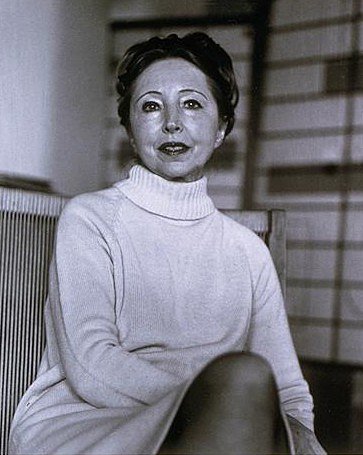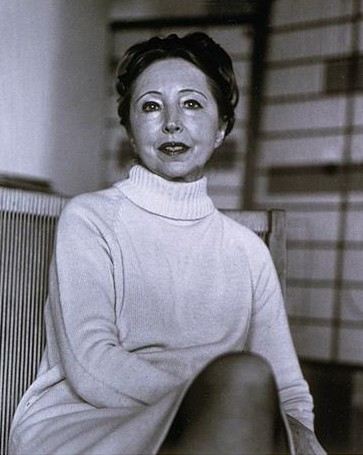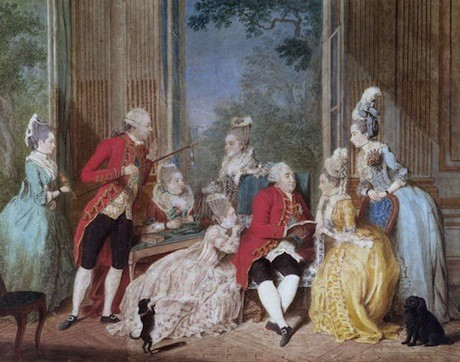Salons: Not Just for Thé

Tue 17 May 2011

Anaïs Nin.
Skip over the books on Paris this once and dive into some literature.
Smart is sexy. Especially in Europe and particularly in Paris. Sometimes there’s so much hype over the latest eye serum or hot new handbag that we almost forget what our most seductive organ is. The brain. (Well, what did you think? Get your mind out the gutter!)
If we’re rushed, as so many of us are, it can sometimes seem like a real effort to take the time to feed our minds. “I’m finished with school,” you may say. Que nenni. Why not take a leaf from French history and start your own salon, or “gathering of people under the roof of an inspiring host, held partly to amuse one another and partly to refine taste and increase their knowledge of the participants through conversation.” Thank you, Wikipedia.

This way you get to socialize as well as get stimulated (stop it!), and the group serves as a motivator—you don’t want to be the one without an opinion, do you? Perhaps the easiest way to engage is with a book club. I’m sure you’ve devoured plenty of books on Paris, so let’s move on to some classics (mainly modern). Some suggestions to get you started:
Colette
In particular, her short stories “Gigi” and “The Cat,” often published together, and her masterpiece novel Chéri, about the love of a young man for an older woman. Plenty to discuss here, and the author’s prose and attention to psychological detail are exquisite and deceptively simple.
Françoise Sagan
Try Bonjour Tristesse, Sagan’s most famous novella, written when she was just 18. Remind yourself of this as you read—did I have such powers of perception then? I lent this to my mother over Christmas and we spent a long time discussing.
Voltaire
If you missed it in college, pick up Candide and Other Stories. Yes, it’s philosophy. No, it’s not dull or difficult. Promise. In fact, I was openly chortling in public. Easy to see why Voltaire was a hero of the Enlightenment.
Choderlos de Laclos
I can’t neglect Les Liaisons dangereuses (Dangerous Liaisons). The epistolary style makes it easy to dip in and out. As shocking today as it was then? You decide. And no, watching the movie does not count.
Anaïs Nin
A Spy in the House of Love is a psychological character study of Sabine (many believe it is Nin herself), an adulteress looking for someone to save her from herself.
Or, if you’d rather discuss art, why not pick a painting and meet to talk about it? Any of these discussions can easily be done over a group dinner, to make them a real social event. Make sure you invite the guys too!
OK, so if you really came looking for books on Paris, visit our Amazon store!